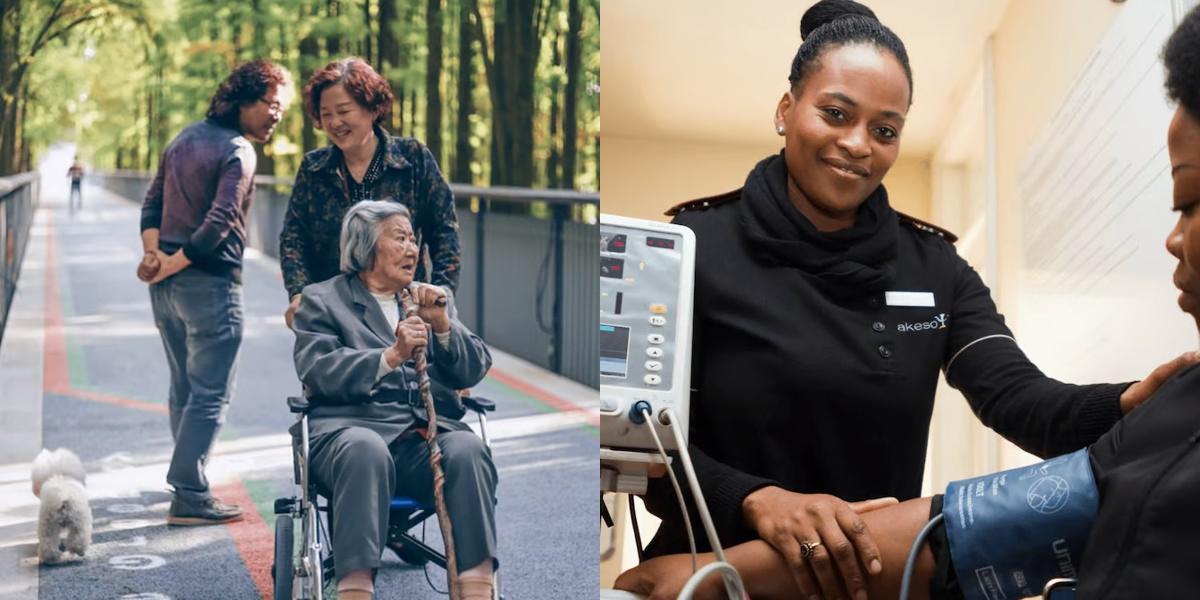Home Health Aide vs Patient Care Technician

Key Points:
- Home Health Aides provide basic care in a patient's home; Patient Care Technicians work in healthcare facilities and perform more advanced tasks.
- Home Health Aides typically earn less than Patient Care Technicians.
- Home Health Aide jobs are in high demand due to an aging population, while Patient Care Technician jobs are also in demand across various healthcare settings.
- Home Health Aide training can be done online or in-person, while Patient Care Technician training is usually in-person and more comprehensive.
- Home Health Aide training is generally less expensive and shorter than the training required for Patient Care Technicians.
When it comes to choosing a career in the healthcare industry, there are many options available. Two popular choices for individuals interested in providing hands-on care to patients are becoming a Home Health Aide (HHA) or a Patient Care Technician (PCT). While both roles involve assisting patients with their daily needs, there are some key differences between the two positions. In this blog post, we will explore the roles of a Home Health Aide and a Patient Care Technician, the differences between the two, and the education and training required for each. We will also discuss the career outlook and salary potential for individuals in these professions.
Home Health Aide:
- Formal education is not always required to become a Home Health Aide. Some HHAs receive on-the-job training, while others complete a state-approved training program.
- Training programs for HHAs typically cover topics such as personal care techniques, infection control, and basic medical terminology.
- Some states require HHAs to pass a competency exam or obtain certification.
Patient Care Technician:
- To become a Patient Care Technician, individuals typically need to complete a postsecondary education program, such as a certificate program or an associate's degree.
- These programs usually include coursework in topics such as anatomy and physiology, medical terminology, and patient care skills.
- PCTs may also need to obtain certification in areas such as phlebotomy or electrocardiography.
Home Health Aide vs Patient Care Technician: Career Outlook and Salary
Home Health Aide:
- According to the Bureau of Labor Statistics (BLS), the employment of Home Health Aides is projected to grow 34 percent from 2019 to 2029, much faster than the average for all occupations.
- The median annual wage for Home Health Aides was $27,080 in May 2020, according to the BLS.
Patient Care Technician:
- The BLS does not provide specific data for Patient Care Technicians, but the employment of nursing assistants, who have similar job duties, is projected to grow 8 percent from 2019 to 2029.
- The median annual wage for nursing assistants was $30,850 in May 2020, according to the BLS.
Final Thoughts
Both Home Health Aides and Patient Care Technicians play vital roles in providing care to patients in need. While Home Health Aides focus on providing personal care in patients' homes or residential care facilities, Patient Care Technicians have a more clinical role in hospitals or other healthcare settings. The education and training requirements for each profession also differ, with HHAs often receiving on-the-job training and PCTs typically completing a postsecondary education program. The career outlook for both professions is positive, with strong job growth expected in the coming years. Ultimately, the choice between becoming a Home Health Aide or a Patient Care Technician will depend on individual preferences and career goals.
Dreambound offers programs in multiple locations. For in-depth information on the intricacies of these two vocations, their prerequisites, and steps to join, explore the following blogs:

Pia Yapjoco is part of the school growth and sales team at Dreambound. She helps facilitate school partnerships that expand educational opportunities for aspiring students in allied health and other trades. Beyond work, she curates her pup's Instagram, hunts for hidden coffee gems, and escapes into cozy gaming.




